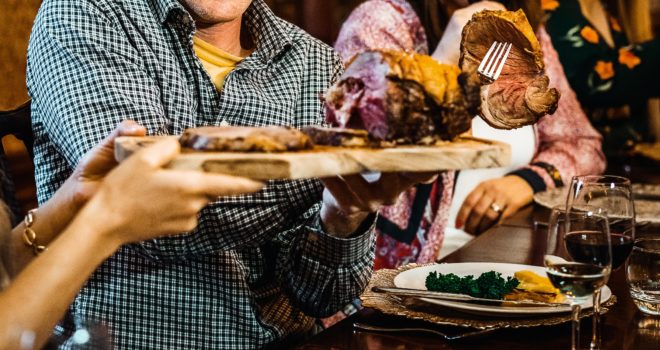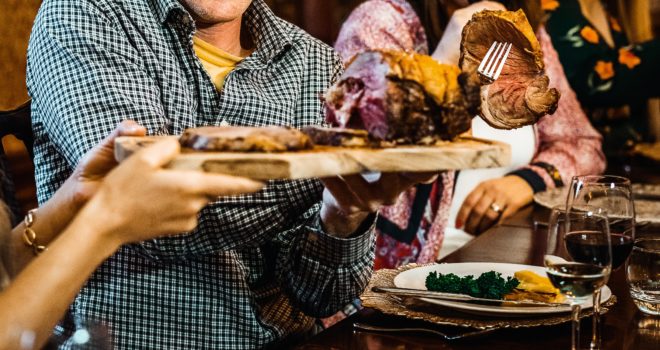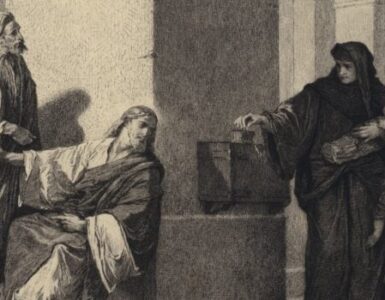We all have them – an obnoxious uncle, a cousin without a verbal filter, a parent who’s an enabler, a sibling who can’t let go of that grudge from ten years ago. Family dynamics are among the most complicated relationships we will experience in our lives. Some of us want to keep the holidays as they were when we grew up, which means maintaining peace at all costs and being around people who might activate our frustration or push political buttons.
For others, the holidays are foreboding seasons that weigh upon their hearts with difficult decisions about who, or even whether, to see this year. Most of us don’t want to hurt or disappoint our families of origin, but we may be in a fragile emotional state right now. That’s important to acknowledge, too.
Maybe you are working through some past trauma, or you’re deep into therapy and have come to a major shift in your life. You are beginning to recognize pathological patterns of behavior in your primary caregivers, and for the first time you are finding a way to set healthy boundaries around your heart.
I’ve heard it said that loving our enemies means tolerating whatever people hand us. It’s the concept of turning the other cheek. It’s the idea that true Christian love entails a permissive attitude toward the way we are treated, that it’s commendable when we choose to remain silent as people around the Christmas dinner table taunt or tease us.
When I first heard this in my adolescence, it didn’t sit right with me. At the time, my mom was spending an exorbitant amount of time on the phone (these were the corded phone days with no call waiting), hours upon hours simply allowing her “friends” to lament to her day after day about the same problems that they never seemed to want real resolution to.
I confronted her about this, and she sighed, saying, “Well, I’m trying to be a good Christian woman.” And that was that.
As I grew into my own womanhood, I adopted my mother’s philosophy of sitting quiet and putting up with maltreatment, even though doing so always left me with compounded shame and an internalized sense of worthlessness. This, of course, impacted my relationship with God, in the sense that I had trouble accepting His unconditional love – because the only love I’d ever known was rigidly conditional.
What’s helped me understand myself in relationship to other people is this: the beatitude of meekness. It is the ability to be both tender and mighty. It means I can sit with a person I know is carrying some type of dysfunction, without allowing that person to gaslight me, to manipulate me, to demean or belittle me.
I have learned to be gentle in my verbal expression of emotional boundaries: “Please stop saying that. It’s hurtful” or “I don’t appreciate being disrespected in that way.” Naturally, when I began setting boundaries, I received defensive responses. When you have been treated a certain way for so long and then gain agency over changing that dynamic, people closest to you will resist it.
But it is not Christian charity to become someone’s scapegoat, to be abused in any form by anyone. Believing this is one’s calling – to just put up with it silently – is a distorted perspective of love. I would go so far as to say that it is a form of false humility, in fact.
God’s love is perfection. It heals. It does not destroy. While we know that all of us on earth are fallible and we all inevitably hurt each other, we are not required by God to surround ourselves with people who have severely damaged our psyches or wounded our souls. This includes your parents, your siblings, your extended family.
Only you can determine what human relationships are safe for you right now. If it helps, consult a trusted priest or your spiritual director or a close friend who understands your situation. There are ways to express your love of family without an extended celebration of the holidays in person: sending handwritten, thoughtful cards; a phone call; gifts made from the heart.
Healing cannot happen when we continue the same patterns that have kept us in a state of distress. And God wants your healing, especially this time of year. He longs for you to be whole, to rest in His peace that surpasses all understanding, and to yield to His Heart – the only heart that will love you the way you have always needed to be loved.
True charity is a divine act. It is a decision, a conscious willingness to behave in ways that are unitive, kind, and forgiving. Pray for the tenderness of the Christ-Child to be born into your heart anew this year, that you might learn how to navigate the painful relationships and perhaps receive the courage to begin a difficult conversation that might well lead you and those you love to greater holiness.
✠
Photo by Sebastian Coman Photography on Unsplash












